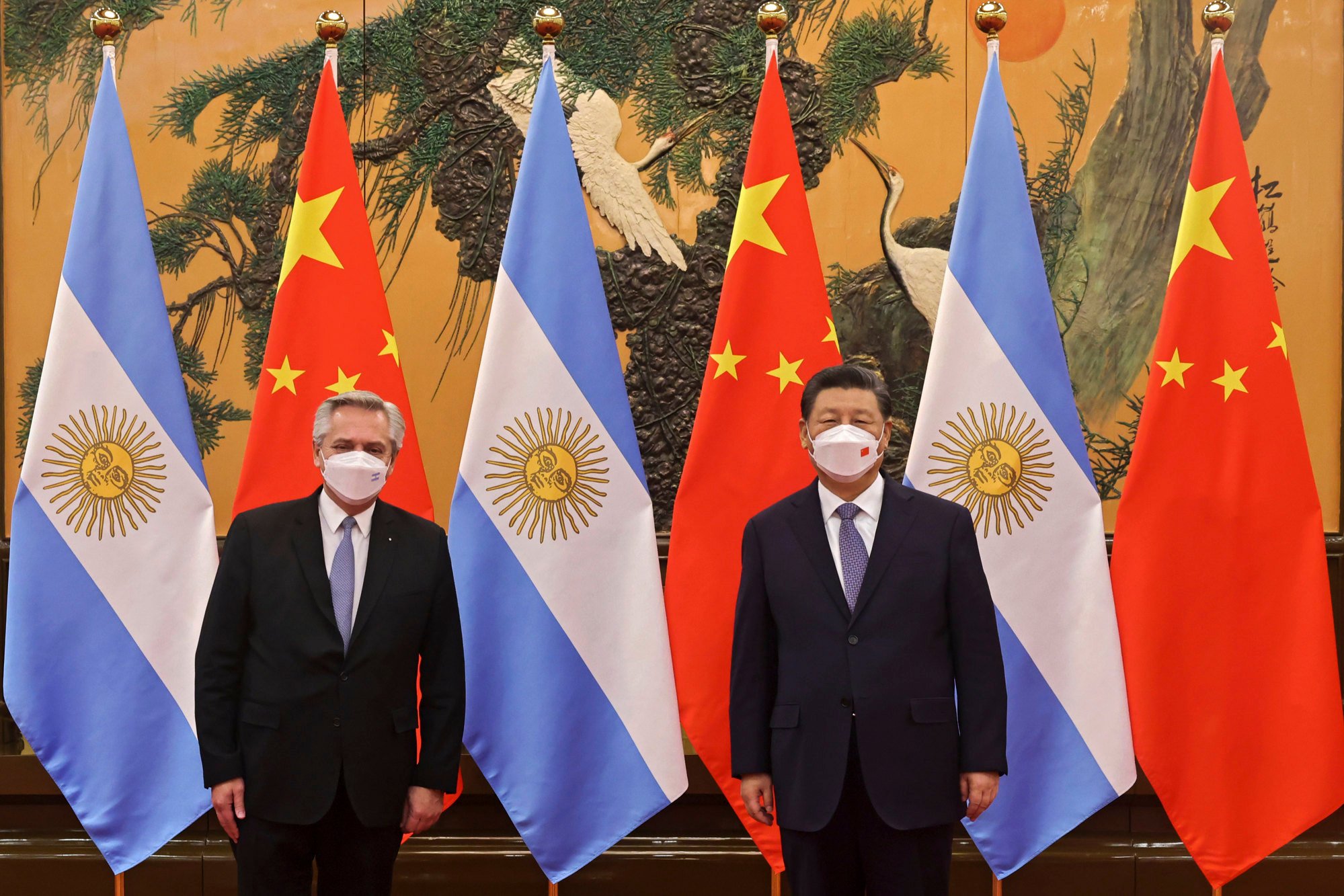
Sudden rise of ‘Argentina’s Trump’ Javier Milei puts economic ties with China at risk
- The surprise winner of Sunday’s primary elections has criticised Beijing’s human rights record and threatened to freeze relations
- Milei has said he will respect existing deals and is unclear how far he will be able to unravel existing relations with a major buyer of Argentinian exports
The sudden emergence of Javier Milei as Argentina’s presidential front runner has caused alarm in Beijing after the far-right populist threatened to freeze relations and attacked the Chinese Communist Party’s human rights record.
The far-right populist, who unexpectedly won Sunday’s primary election, likened the Chinese government to an “assassin” this week.
“People are not free in China, they can’t do what they want and when they do it, they get killed,” he told Bloomberg News on Wednesday. “Would you trade with an assassin?”
Milei’s surprise win has put the libertarian economist in a pole position to become Argentina’s next president in the October election, replacing the China-friendly incumbent Alberto Fernandez.
He has described his foreign policy proposals as a global “fight against socialists and statists,” and lumped China in the same category as Argentina’s biggest trade partner, Brazil, led by leftist President Luiz Inacio Lula da Silva.
However, questions remain about how far Milei will be able to affect the country’s economic relations with China – the second largest buyer of Argentinian exports – and one analyst drew parallels with the limited impact of another anti-China populist, the former Brazilian president Jair Bolsonaro.
Argentina to open consulate in southwest China to meet ‘growing demands’
On Thursday Chinese foreign ministry spokesman Wang Wenbin rejected Milei’s allegation that Beijing did not respect freedom, but largely refrained from criticising the candidate.
“China is a country governed by law. Personal freedom of Chinese citizens, sacred and inviolable, is protected by our constitution. Under the leadership of the Communist Party of China, China has created the two miracles of rapid economic growth and long-term social stability, and people enjoy a growing sense of happiness and security,” he told a scheduled press conference.
“I believe that if Mr Milei can come to China and see the country for himself, he will find a totally different answer to the question of whether or not Chinese people are free and China is safe.”
According to Bloomberg, Milei later toned down his rhetoric against China in the interview, clarifying that it was up to the private sector to decide whether to maintain commercial ties with China, and other countries with leaders that he dislikes.
“I don’t have to get involved, but I won’t promote ties with those who don’t respect freedom,” he said, adding that he would respect deals already signed in Argentina by Chinese companies, which include a contract to build twin dams in Patagonia and an agreement to set up a nuclear plant.
South America’s second-biggest economy is facing its worst economic crisis in two decades, with soaring inflation and unemployment while more than 40 per cent of the population live in poverty.

China has been keen to expand its political, economic and military ties with Argentina and other South American countries, a region traditionally seen as America’s backyard.
China is the second-largest buyer of Argentine exports. Argentina, along with Brazil, has started using the yuan to repay some of the money it owes the International Monetary Fund, with the People’s Bank of China providing a crucial US$18 billion swap line to support the peso.
Beijing also vowed to deepen trade and economic ties with Argentina when the country’s economy minister Sergio Massa visited China in June.
According to US and Argentinian media reports, US President Joe Biden has stepped up pressure on the South American country to buy American F-16 fighter jets instead of Chinese JF-17s, in a deal worth about US$700 million.
Argentina has formally applied to join the BRICS group of five major emerging economies – Brazil, Russia, India, China and South Africa. The group’s expansion is expected to be high on the agenda at its summit next week in South Africa, with Argentina being a leading candidate.
China tells UK to avoid moves that could ‘aggravate tension’ in Falklands issue
Jiang Shixue, director of the Centre for Latin American Studies at Shanghai University, said Milei was known as the Donald Trump of Argentina, and also drew parallels with Bolsonaro.
“Like Trump, they are famed for making irresponsible remarks during the election campaigns to attract voters. Bolsonaro also said a lot of things that hurt China’s relations with Brazil during his campaign, but after coming to power he did not cut off relations with China.
“While Bolsonaro adopted a pro-US policy and is somewhat cold to China, the relationship between China and Brazil has not been fundamentally overturned,” he said.
Jiang said Milei’s comments about freezing relations with China did not make much sense.
“They are utter nonsense and irresponsible. China-Argentina relations, especially economic relations are developing rapidly. Economically, Argentina relies on China and has benefited a lot from bilateral economic and trade relations. The Argentine people know it very well,” he said.

